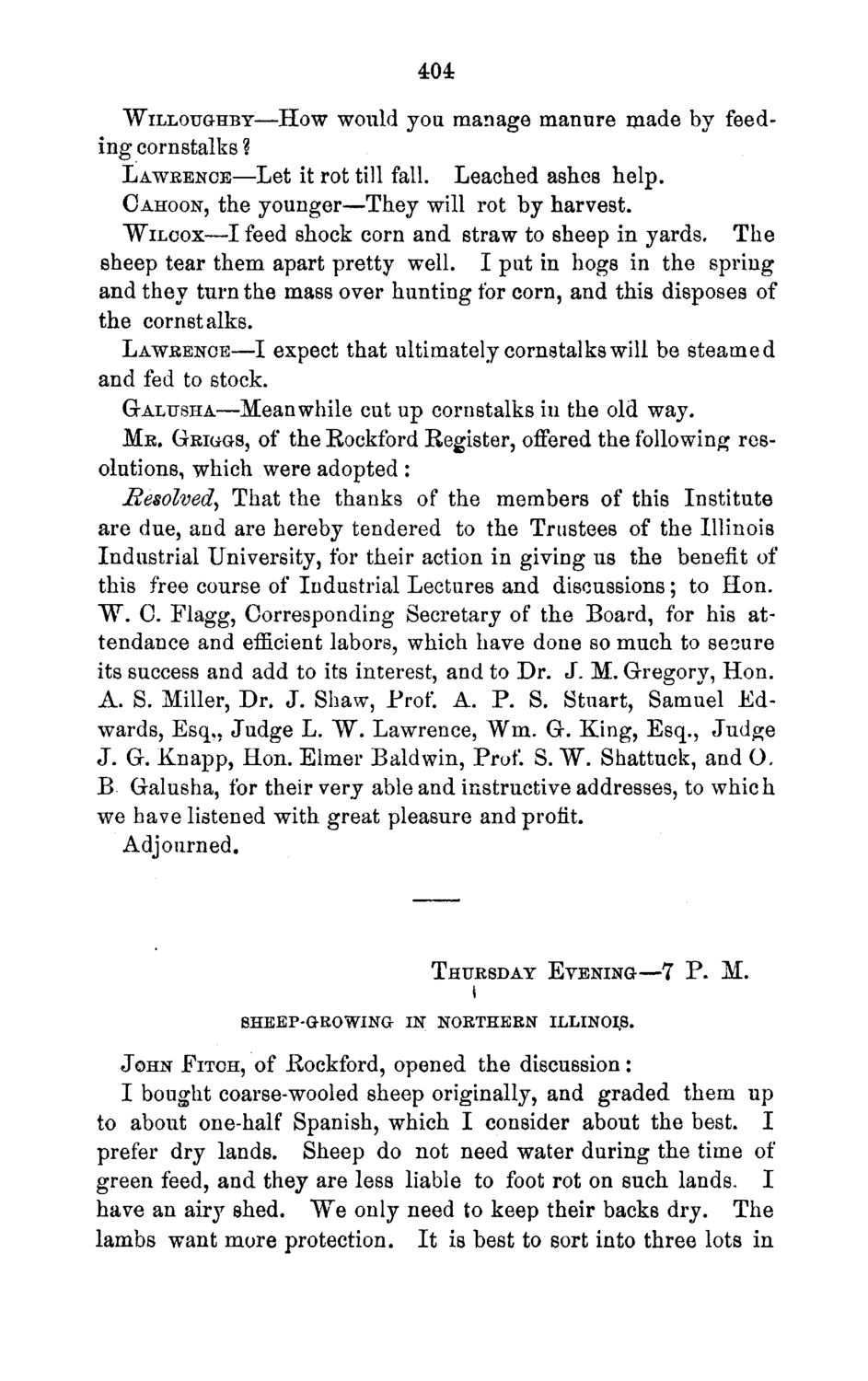| |
| |
Caption: Board of Trustees Minutes - 1870
This is a reduced-resolution page image for fast online browsing.

EXTRACTED TEXT FROM PAGE:
404: "WILLOUGHBY—How would you manage manure made by feeding cornstalks ? LAWRENCE—Let it rot till fall. Leached ashes help. CAHOON, the younger—They will rot by harvest. WILCOX—I feed shock corn and straw to sheep in yards. The sheep tear them apart pretty well. I put in hogs in the spring and they turn the mass over hunting for corn, and this disposes of the cornstalks. LAWRENCE—I expect that ultimately corns talks will be steamed and fed to stock. GALTJSHA—Meanwhile cut up cornstalks in the old way. M R . GRIGGS, of the Eockford Register, offered the following resolutions, which were adopted: Resolved, That the thanks of the members of this Institute are due, and are hereby tendered to the Trustees of the Illinois Industrial University, for their action in giving us the benefit of this free course of Industrial Lectures and discussions; to Hon. W . C. Flagg, Corresponding Secretary of the Board, for his attendance and efficient labors, which have done so much to secure its success and add to its interest, and to Dr. J. M. Gregory, Hon. A. S. Miller, Dr. J. Shaw, Prof. A. P . S. Stuart, Samuel Edwards, Esq,, Judge L. "W. Lawrence, Wm. G. King, Esq., Judge J . G. Knapp, Hon. Elmer Baldwin, Prof. S. W. Shattuck, and O. B Galusha, for their very able and instructive addresses, to which we have listened with great pleasure and profit. Adjourned. THURSDAY EVENING—7 P . i SHEEP-GROWING I N NORTHERN ILLINOI.S. M. of Eockford, opened the discussion: I bought coarse-wooled sheep originally, and graded them up to about one-half Spanish, which I consider about the best. I prefer dry lands. Sheep do not need water during the time of green feed, and they are less liable to foot rot on such lands, I have an airy shed. "We only need to keep their backs dry. The lambs want more protection. I t is best to sort into three lots in JOHN FITCH,
| |